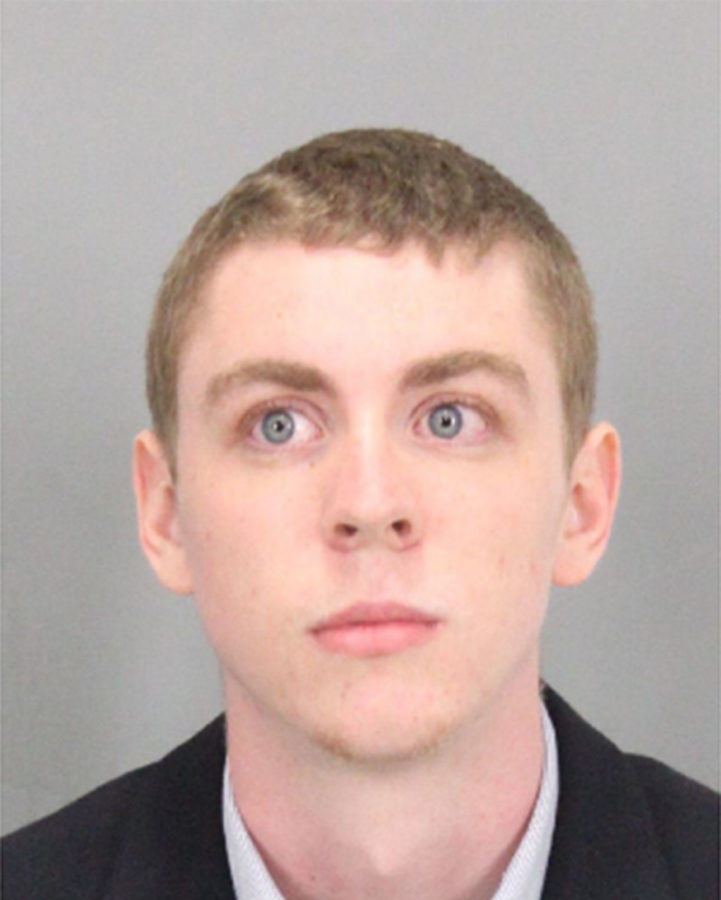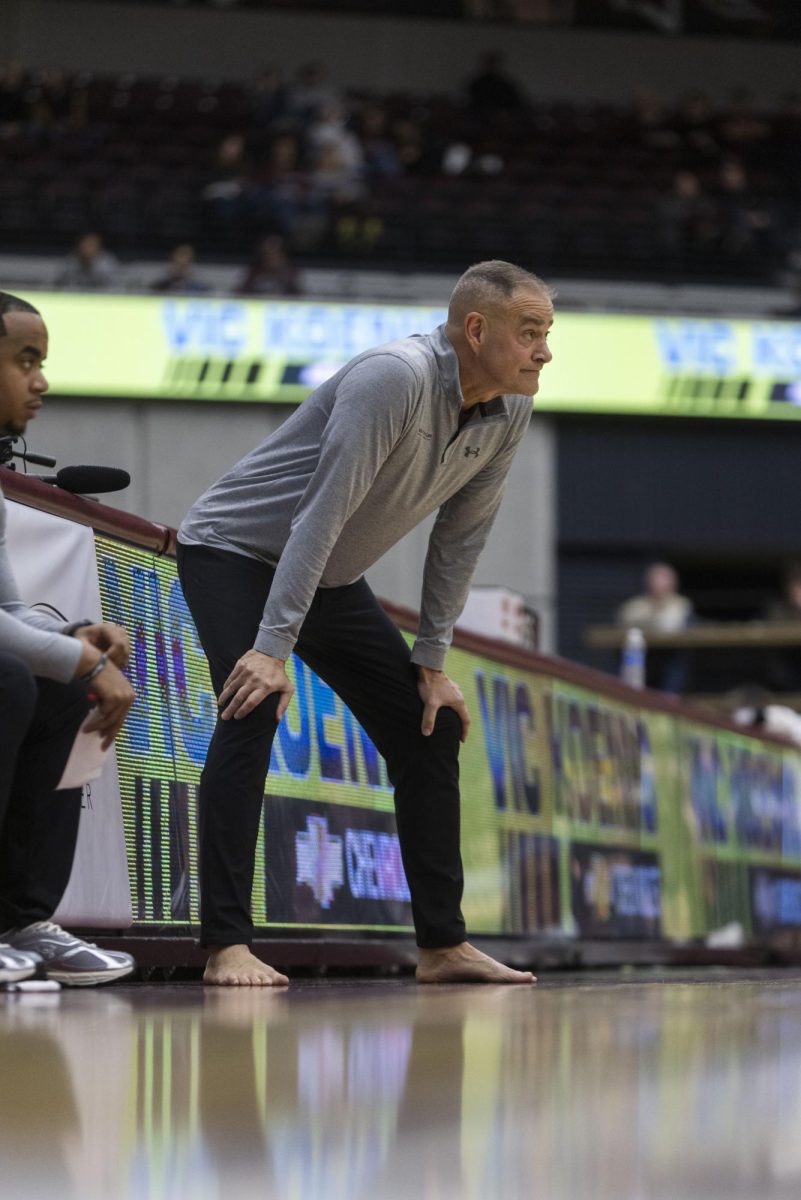Documents show student in sex-assault case lied about never using drugs and not drinking before enrolling at Stanford
Brock Turner was convicted of sexually assaulting an unconscious woman on Stanford’s campus in 2015.
June 11, 2016
Judge Aaron Persky said he took Brock Turner “at his word” last week when he sentenced the one-time Stanford University swimming star on charges that he sexually assaulted a woman on campus.
Turner said he thought he was having consensual sex with the victim, even though she was unconscious when he was caught on top of her behind a dumpster.
Judge Persky also seemed to believe the larger narrative Turner put forward during that trial: A 19-year-old freshman from small-town Ohio, naive about drinking and partying, looked to his swim teammates for guidance in a wild new social realm and made one quick bad decision.
Advertisement
But 471 pages of documents released by the Santa Clara County Superior Court show Turner lied about never using drugs and not drinking before college. And they depict Turner as not simply making a bad choice, but having a penchant of making aggressive, unwanted advances on women; at the frat party where he met the victim, he kept forcing kisses on the victim’s younger sister as she “wiggled out of his hold.” At a party a week before, he “creeped out” a woman he tried to grab.
Prosecutors, who were asking for a sentence of six years in prison at the hearing last Thursday, wrote that his “behavior is not typical assaultive behavior that you find on campus, but it is more akin to a predator who is searching for prey.”
Apparently unswayed, Persky sentenced Turner to what will probably amount to three months in jail, and promptly found himself in a firestorm of outrage.
A Stanford law professor has launched an effort to recall Persky, and nearly a million people have signed an online petition calling on the California Commission for Judicial Performance to remove him.
At a time the country is engaged in a pitched debate over what constitutes consent for sex in college, the Stanford case appeared, to many, to be a clear case of rape. Two Swedish students bicycling in the predawn hours of Jan. 18, 2015, found Turner on top of the half-naked victim while she was unconscious. He tried to run when they saw him, but they pinned him down.
She woke up on a gurney in a hospital. Her hair was matted with pine needles. She had abrasions and dirt in her vagina — and no memory of the assault.
Turner pleaded not guilty and was convicted on March 30 for assault with intent to commit rape of an intoxicated woman, sexually penetrating an intoxicated person with a foreign object (his finger or fingers) and sexually penetrating an unconscious person with a foreign object.
Advertisement*
At the sentencing the victim read her statement, presenting an eloquent account of her devastation and a raw critique of Turner’s claim of innocence. A revised version of the statement was posted on Buzzfeed.
“He claimed that I orgasmed after one minute of digital penetration. The nurse said there had been abrasions, lacerations, and dirt in my genitalia. Was that before or after I came?”
“Brock stated, ‘At no time did I see that she was not responding. If at any time I thought she was not responding, I would have stopped immediately.’ Here’s the thing; if your plan was to stop only when I became unresponsive, then you still do not understand. You didn’t even stop when I was unconscious anyway! Someone else stopped you. Two guys on bikes noticed I wasn’t moving in the dark and had to tackle you. How did you not notice while on top of me?”
“To sit under oath and inform all of us, that yes I wanted it, yes I permitted it, and that you are the true victim attacked by Swedes for reasons unknown to you, is appalling, is demented, is selfish, is damaging. It is enough to be suffering. It is another thing to have someone ruthlessly working to diminish the gravity of validity of this suffering.”
The court files released Friday provided more details about victim’s struggles to recover from the attack.
A statement by her live-in boyfriend said she locks herself in the bathroom for hours at a time and cries. She cannot sleep alone and has not gone back to full-time work.
Her sister, who was home that weekend from college, is suffering from guilt for not protecting her, according to a statement in the case file.
She said learned the graphic details of her sister’s assault through a police report “that went publicly viral before anyone told us.”
“That night, she came with me to have fun with me and my friends, with no interest in even meeting anyone, let alone hooking up with anyone outside. She had even called me right before he found her, standing and slurring, alone and vulnerable. Today, I am still sick thinking about it. Sick to my stomach every time that I am reminded of the incident. I am still sad that I was not there to protect her. We have both been devastated, we have been speechless, and we have cried until our bodies have run dry.”
The sister wrote that she fell behind in school, suffered panic attacks, barely slept and “stayed up at night obsessively turning the events of the night over in my head; delusional that it was my fault for leaving her alone for a stranger to prey upon.”
According to a sheriff’s and prosecutors’ reports, the sister and friends had been in the outside patio area of the fraternity house where they met three young men.
One of them was more aggressive — and the sister later identified that man in a lineup as being Turner. He was not even speaking to the sister when he turned to her and “started making out on her cheek” before going for her lips. She laughed in shock and he left, she said.
He returned shortly later and tried to make out with her again. He grabbed her from in front, at her lower waist, and kissed her on the lips. She said she had to leave and wiggled out from his hold.
“It was abundantly clear from (her) testimony that she was completely caught off guard by his multiple attempts to kiss her that night. She even had to get away from him after he grabbed her waist, and she alerted her friend, Colleen, to his behavior,” according to the prosecution’s sentencing memorandum.
Two other women who attended a fraternity party a week before the assault told a detective that Turner followed them onto a table where they were dancing. He was flirtatious with one of the women, put his hat on her, starting dancing behind her and turned her around to face him.
“She felt uncomfortable and tried to turn her body away so that he would not be directly ‘behind’ her,” according to prosecutors.
Turner became touchy and put his hands on her stomach, waist and upper thighs. After becoming increasingly uncomfortable, she got off the table.
“She said the defendant ‘creeped’ her out because of his persistence,” prosecutors said in the court documents.
The morning of the assault and Turner’s arrest, investigators found a text message in a “Group Me” application on his cellphone that said “Who’s (breasts) are those?” Later, detectives sent his phone to a crime lab to try to retrieve the message and any attached photos. But they could not because they were deleted, apparently by a third party, according to prosecutors.
Text messages also showed that that in Ohio and at Stanford, Turner had used LSD and MDMA — one time in combination, known as a “candy flipping,” according to prosecutors. He smoked marijuana and dabs of butane hash oil, known as “wax.”
“Do you think I could buy some wax so we could do some dabs?” he texted to a friend in 2014.
That year he was also arrested for underage drinking.
According to prosecutors, Turner and members of his swim team were stopped by a deputy after they were spotting drinking beer on campus and then tried to run away. He was wearing a bright orange tuxedo, had a fake driver’s license and smelled of alcohol.
“He stated that when he saw Deputy Shaw approach, he made the decision to run. While running, he heard the verbal commands to stop, but continued evading. He said it was a split-second decision and he regretted it.”
Before handing down the sentence, Persky received several letters from Turner’s friends and family, asking the jurist for leniency.
(c)2016 Los Angeles Times
Visit the Los Angeles Times at www.latimes.com
Distributed by Tribune Content Agency, LLC.
Advertisement









